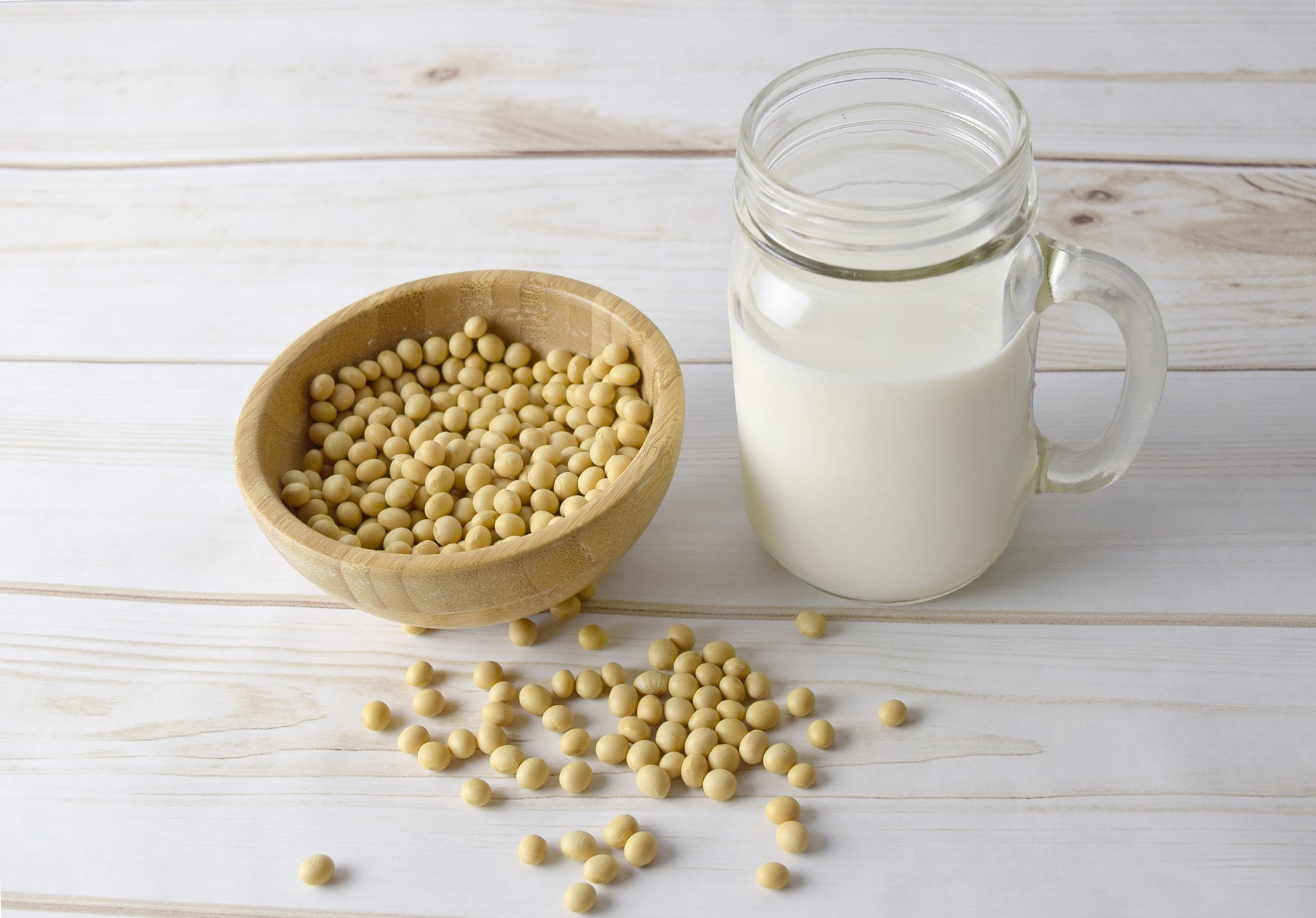There is a great deal of interest surrounding the potential connection between the consumption of soy-based foods and the normal functioning of the thyroid gland.
With that in mind, today’s article will aim to explore two major questions:
1. Does soy intake increase one’s risk of thyroid disorders?
2. Do those living with thyroid conditions need to manage their soy intake?
Before we go any further I must also note that today’s post was sponsored by Archer Daniels Midland (ADM), but all opinions are my own.
An Intro to The Thyroid Gland
Your thyroid is a butterfly-shaped gland found at the front of the neck and is responsible for secreting hormones that are essential for regulating your metabolic rate.
As a result, disorders of the thyroid gland have the potential to “speed up” or “slow down” your metabolism, in addition to a host of other physiological effects.
According to the Canadian Thyroid Foundation, the prevalence of thyroid disorders ranges from .85% to 5% worldwide, with women being 4-7x more likely to be affected.
That sentiment is supported by the fact that thyroid medication is one of the top 3 prescribed medications for Canadian women aged 25-79, but does not make the top five list for men.
Hypo vs Hyperthyroidism
There are many different types of thyroid disorders, which generally lead to one of two physiological outcomes.
Hyperthyroidism means there is too much thyroid hormone being produced, causing your metabolic processes to ramp up to unnaturally high levels. This can lead to agitation, anxiety, tremors and so on. People living with hyperthyroidism may be wise to avoid caffeine, as adding stimulants to the equation may make thing worse.
Hypothyroidism means there is too little thyroid hormone being produced, causing a metabolic slowdown and general lack of energy, constipation and perhaps weight gain in some people as well.
The Thyroid Soy Connection
Allow me to get this conversation started by saying that I have not come across any evidence in human studies to indicate that those who eat more soy have an increased risk of suffering from a thyroid disorder.
The second question that needs to be answered, however, is a slightly more complex one.
Do people living with thyroid issues (or subclinical thyroid issues) need to be wary of soy intake?
Let’s take a closer look, while also keeping in mind the discussion that takes place below is not a substitute for proper clinical care and guidance if you are living with thyroid issues.
Soy & Thyroid Medication
Thyroid medication helps to regulate the hormonal imbalances associated with thyroid dysfunction.
You may have heard that people on thyroid medication should avoid soy.
A more accurate representation, as per Messina et al, is as follows:
Soy-based foods may increase the amount of thyroid medication needed by hypothyroid patients because soy protein may affect the absorption of levothyroxine (the medication).
Due to the numerous health benefits of soy intake, the logical course of action for someone on thyroid medication would be to more closely discuss their intake habits with their healthcare practitioner, monitor their hormone levels, and adjust their medication doses as necessary to ensure the intended results.
Soy & Subclinical Hypothyroidism
Subclinical hypothyroidism is essentially a mild form of the condition where signs arise that thyroid hormone levels are starting to drop.
While I was reviewing the available studies on soy intake and thyroid functioning, I came across an interesting piece that looked at soy intake in individuals with subclinical hypothyroidism and how it affected their risk of progressing to “overt” or clear, standard hypothyroidism.
One particular study stood out.
It was a 2011 randomized, double-blind cross-over study out of The Journal of Clinical Endocrinology & Metabolism that looked at people living with subclinical hypothyroidism who were provided either a diet that was high or low in soy-based foods.
The low-level intervention reflected the average soy intake of the standard American diet whereas the high soy intake reflected a vegetarian diet, which naturally would tend to include much more soy-based foods.
Twenty percent of the women on the high-soy diet progressed from subclinical to overt hypothyroidism over the course of the 8-week study.
This is obviously a singular study but, if nothing else, shows a potential connection between quantity of soy intake and the progression of subclinical hypothyroidism that needs to be explored further.
The Author’s personal conclusion: Female vegetarians with subclinical hypothyroidism may need to be closely monitored.
It should be noted as well that the high soy group also enjoyed reductions to fasting glucose, insulin resistance, triglyceride, and cholesterol levels.
Final Thoughts
While the current evidence does not suggest that soy based foods increase an otherwise healthy individual’s risk of developing a thyroid disorder, some populations may be at a higher risk than others and their risk of developing a thyroid disorder requires further study.



